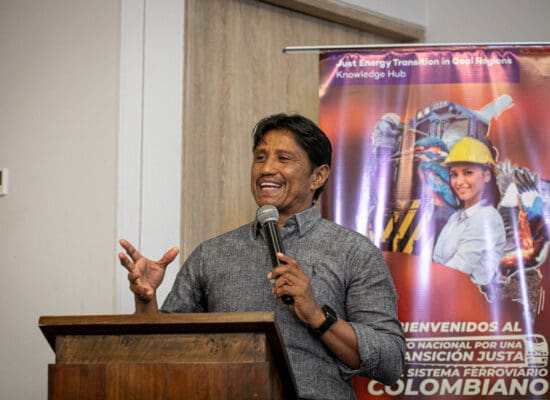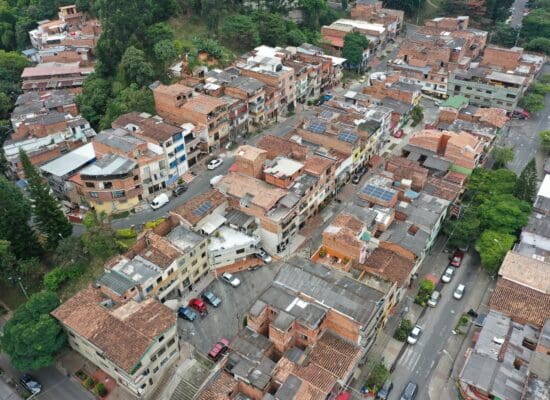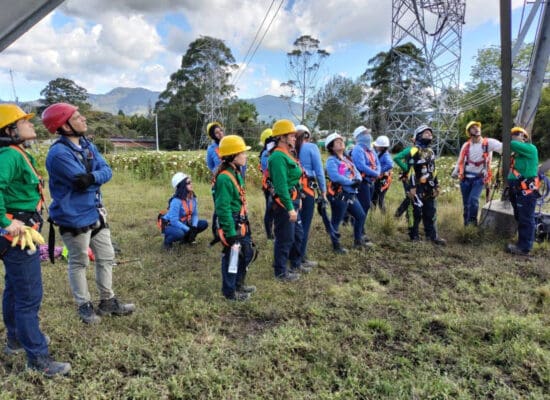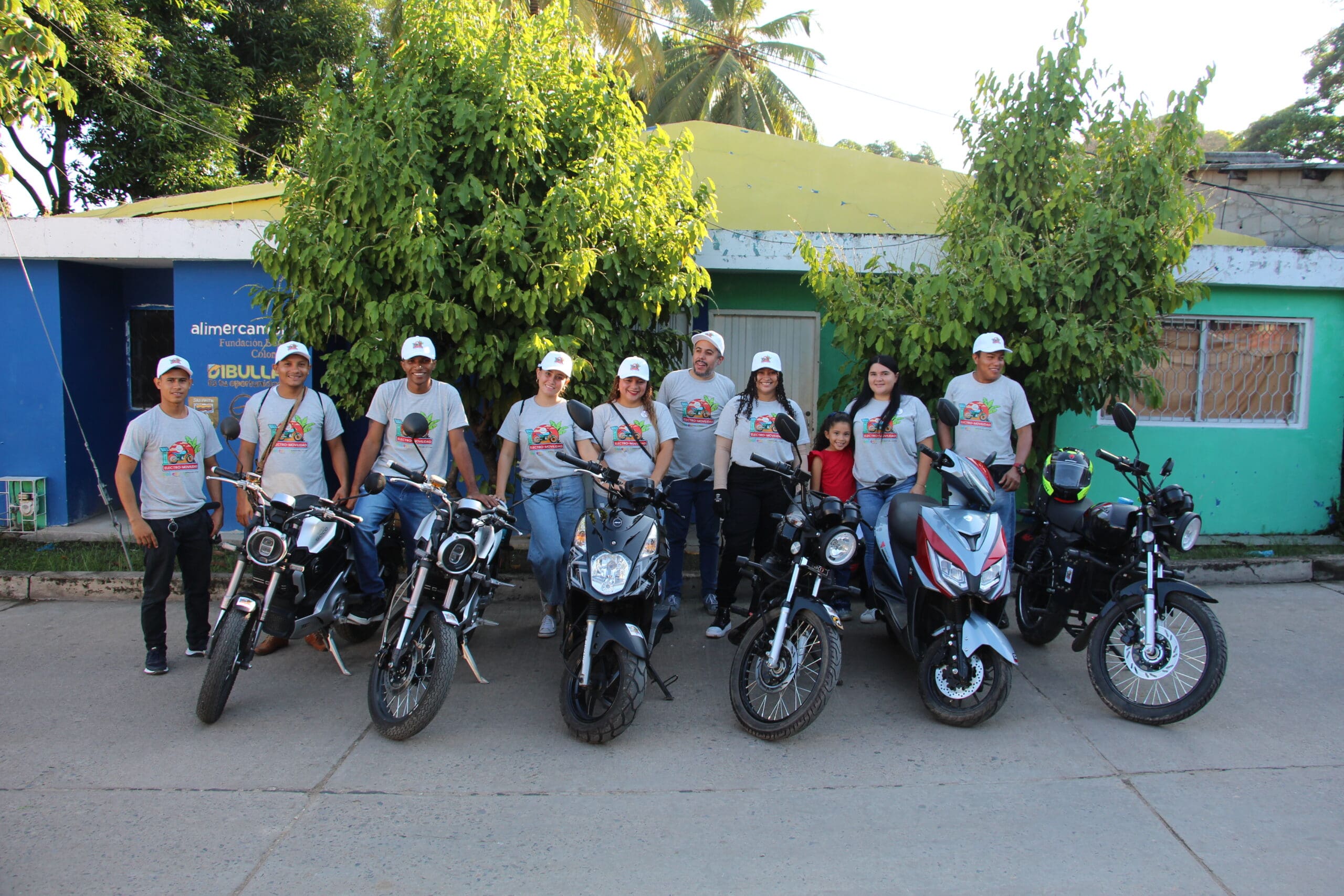
As Colombia moves towards decarbonising its energy mix, one question remains: How do we ensure that communities who depend on the fossil fuel infrastructure to meet their energy needs are not left behind? Located in north Colombia (in the coal-dependent municipality of Dibulla, La Guajira), the small town of Mingueo is home to the E-Rurality Project, an initiative that seeks to create new economic opportunities by integrating electric mobility, local training, and renewable energy.
The Legacy of Termoguajira
In the department of La Guajira, economic development has long been connected to the Termoguajira power plant in Dibulla. The power plant consists of two thermal units (built in 1983 and 1987) with a combined capacity of 175 MW; one unit is fuelled by coal and the other by a mix of coal and natural gas. Over the last 40 years, the power plant has made a significant contribution to the local economy through tax payments, local investments, and the creation of jobs. In 2024, for instance, the company directly employed 196 workers and indirectly supported hundreds more across La Guajira.
With both thermal units nearing the end of their operational lifespan—thermal plants typically operate for 30 to 40 years—the Colombian government announced in 2023 that Termoguajira would be the first plant in the country to transition toward 100% decarbonised electricity generation, building on a combination of solar and batteries. This decision was aligned with Colombia’s national Just Energy Transition Roadmap and signalled a tectonic shift for the region.
But with change comes disruption. As the power plant phases out, questions loom: Which jobs will replace those that are lost? Which industries will fill the economic vacuum?
Introducing the E-Rurality Project
Against this backdrop, the think-tank Polen Transiciones Justas (POLEN) launched the E-Rurality Project in 2023 with the objective of demonstrating that electric mobility is viable as a productive alternative in a rural setting. The town of Mingueo was selected as a pilot site because of its unique geography and economic dynamics. With a population close to 50,000 in 2024 (roughly 6% of the total for La Guajira), Mingueo is split into a semi-urban core and mountainous rural areas within the Sierra Nevada de Santa Marta. Residents here rely heavily on two- and three-wheeled vehicles—such as motorcycles and tuk-tuks—to transport agricultural goods and people between the rural highlands and the urban centres. This dependence made the town an ideal test case for the project.
The E-Rurality Project focuses on converting traditional-combustion two- and three-wheeled vehicles into electric ones powered by a community solar station, then testing them against original equipment manufacturer (OEM) electric motorcycles under the conditions of Mingueo: high humidity, hot weather, and unpaved, off-road terrain. By training residents in vehicle retrofit techniques, the project aims to build local skills and local infrastructure. Furthermore, the decision to retrofit existing vehicles allows the initiative to tailor solutions to local terrain and working conditions while preserving existing assets.
In terms of implementation, six electric motorcycles and one tuk-tuk with ranges of up to 160 km were donated to the trained participants. The participants retrofitted three of these vehicles, which have been operating without any major performance issues. A community-run solar electric vehicle (EV) charging station (the first of its kind in Colombia) was also installed, which is equipped with 12 solar panels, lithium battery storage, and a 6.6-kW inverter.
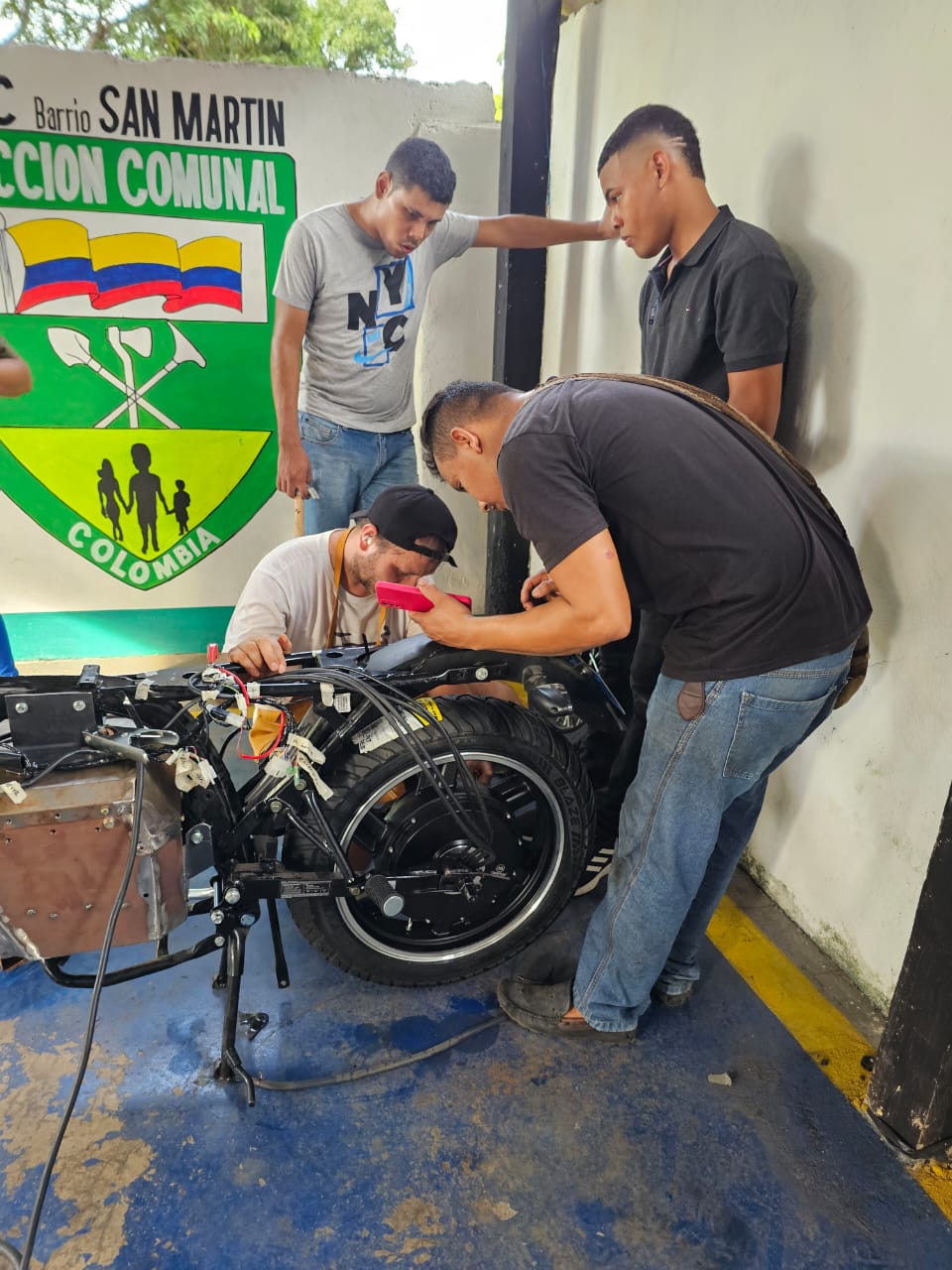
To achieve this, the project emphasised a community-driven approach, where ownership and implementation were led by local actors. Seven participants received specialised training and certification in vehicle retrofitting through a joint effort with multiple organisations and academic institutions, including the Community Council of Mingueo, the University of La Guajira and a private company called Eolo Motors. These partnerships were key to rooting the initiative into the community.
To ensure continuity beyond the pilot, the participants created a local non-profit organisation to manage the assets sustainably. Following market analysis and entrepreneurship training, the organisation plans to offer tourist transport services and open the EV charging stations to more customers.
Impacts and Early Results
Beyond the technical success, the E-Rurality Project has helped challenge long-standing assumptions about e-mobility in rural settings. By offering hands-on experience, it has dispelled common myths around the reliability and power of electric systems for intensive use in rugged terrain. Beneficiaries who were initially sceptical gained confidence through driving demonstrations and targeted training in battery management and driving behaviour, becoming active ambassadors of the technology within their communities. This impact is reflected in the growing adoption of EVs locally, with the community now owning 15 additional electric motorcycles.
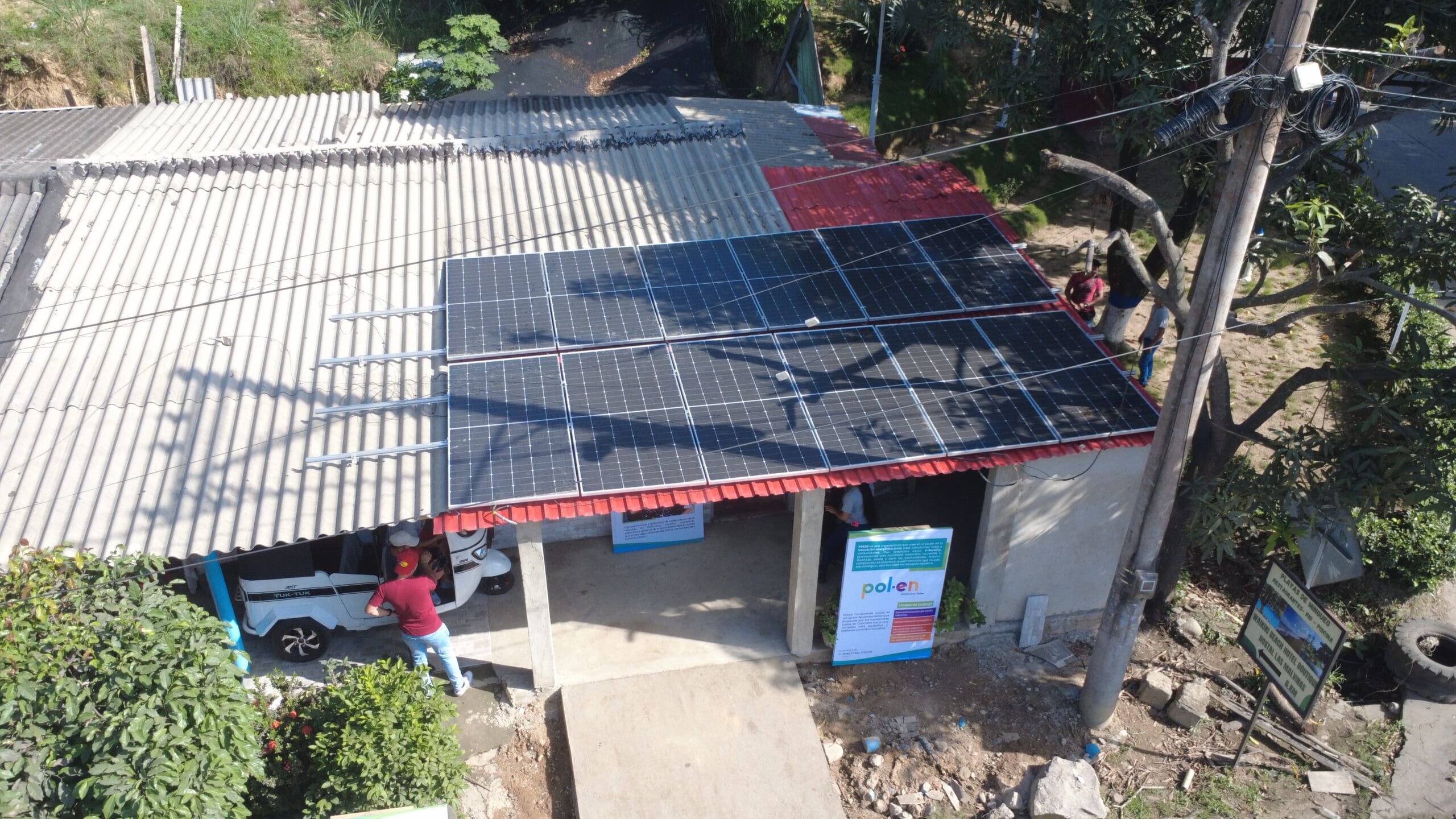
The project also fostered innovation in a context where spare parts for retrofitting motorcycles of high-power capacity (more than 3,000 W) are limited and the quality of components varies. For instance, whenever damage occurred, most of the spare parts had to be imported from China, increasing both costs and repair times. By working through these barriers, the project team adapted locally available technology to suit local needs. This process also laid the foundation for a local service economy around EV maintenance and parts replacement, demonstrating how we can transform technical challenges into opportunities for new skills and livelihoods.
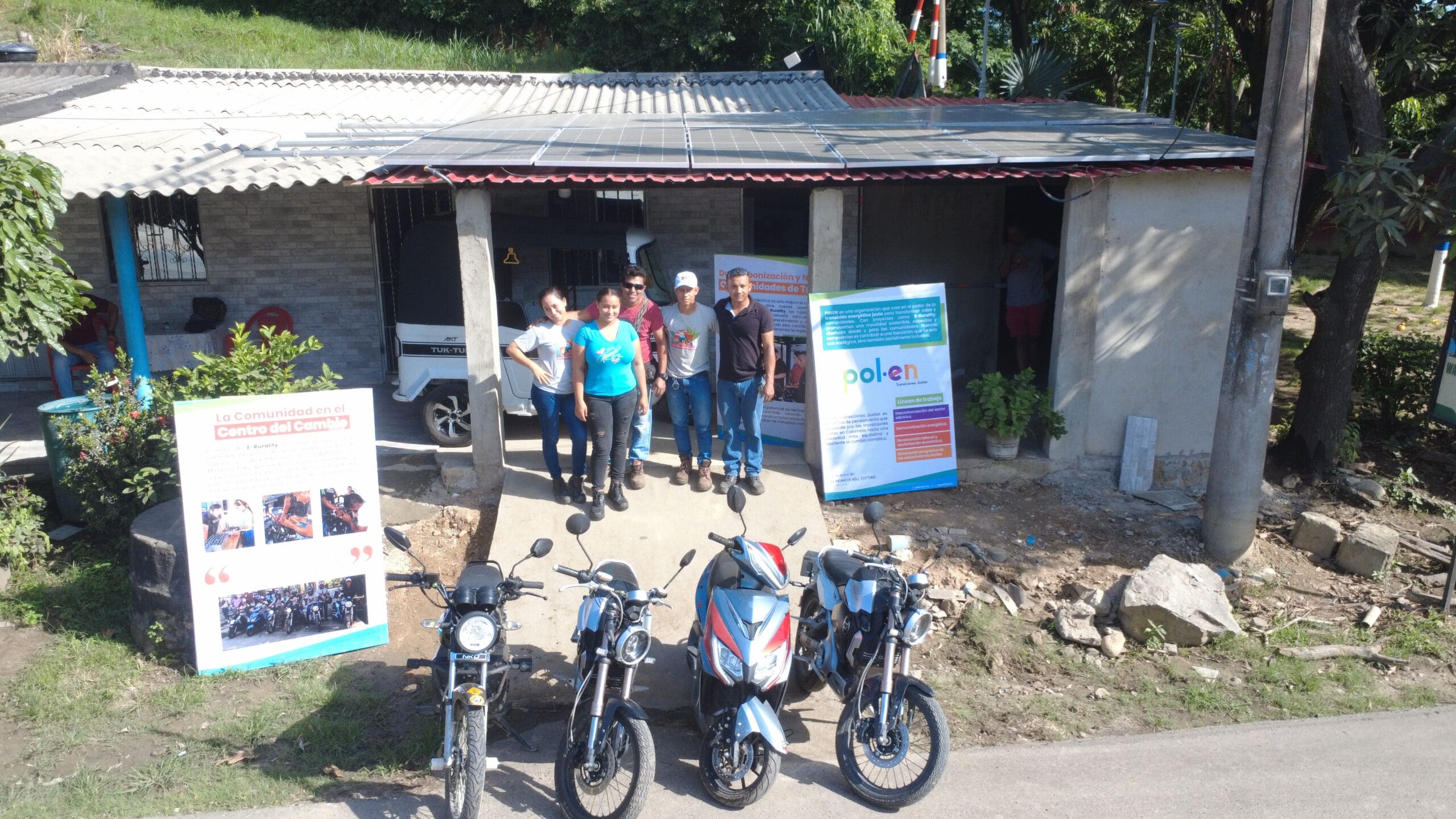
Economic Viability and Remaining Barriers
The economic viability of the vehicles proved to be strong. Compared with combustion motorcycles, the electric models—when used for productive purposes—were found to be more cost-efficient, especially in the context of rising fuel prices. Using electricity from a PV system can be five times cheaper than using petrol when comparing monthly fixed expenses. However, two key barriers to further adoption are apparent. First, the long charging times (5–6 hours) remain a limitation for use in transport services where downtime is very limited. Second, and particularly significant, is the high upfront cost of electric motorcycles and retrofitting in Colombia, which can make them as much as two and a half times more expensive than combustion motorcycles. Addressing these challenges will require expanding the charging infrastructure, lowering vehicle and retrofit costs, reducing charging times, and enabling solutions like battery swapping (replacing depleted batteries with charged ones) to create more accessible market conditions for rural users.
The experience also points to broader policy gaps. Electric motorcycles currently available in Colombia are not designed for rural terrain. Also, the lack of retrofit standardisation makes it difficult to define minimum safety requirements, such as for advanced driver assistance systems. These issues raise concerns, especially given that the segment is expected to grow. National regulation, especially around rural EV use, must evolve to enable further replication.
Next Steps
Ultimately, the E-Rurality Project provides a compelling example of how innovation and bottom-up participation can shape energy transition pathways in rural areas that directly benefit local residents. It also offers a valuable opportunity to shift from an unprofitable, fossil-based business model dependent on subsidies (in Colombia: Fondo para la Estabilización de Precios de Combustibles) to a profitable, productive, and clean one, without increasing costs for end users.
The experience in Mingueo shows that Colombia’s just energy transition will not succeed through technology shifts alone, but also requires policies and partnerships that enable local ownership, reduce barriers to adoption, and create sustainable rural economies. As La Guajira and other coal-dependent regions prepare for deep structural changes, projects like this provide a blueprint for how community-driven solutions can turn transition risks into long-term opportunities.
Juan Pablo Díaz is the project lead for E-rurality at the think tank POLEN Transiciones Justas, where he advances sustainable mobility and renewable energy initiatives. He holds a Master’s degree in Smart Mobility from the Polytechnic University of Catalonia (UPC) and a Bachelor’s in Industrial Design from Pontificia Universidad Javeriana.
Mary Londoño is a research associate at POLEN Transiciones Justas, where she contributes to projects driving the roll-out of renewable energy solutions. She holds an MSc in Sustainable Management and Eco-Innovation from Rennes School of Business and a Bachelor’s in Environmental Engineering from Universidad EIA.
Stay Informed and Engaged
Subscribe to the Just Energy Transition in Coal Regions Knowledge Hub Newsletter
Receive updates on just energy transition news, insights, knowledge, and events directly in your inbox.
